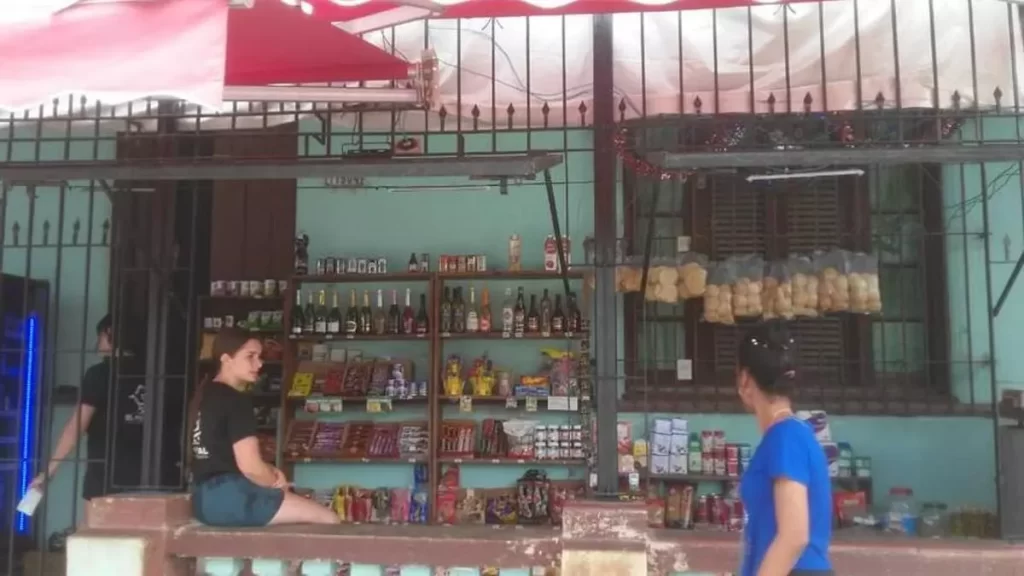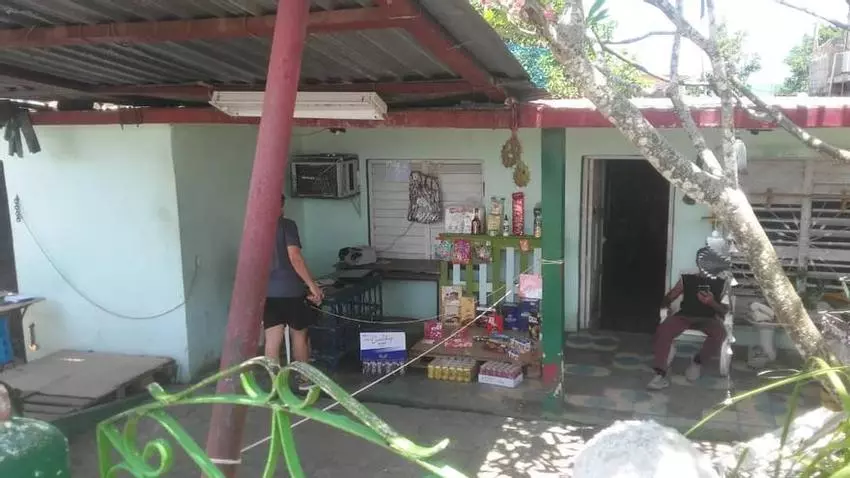If there is one thing that bothers local residents it is that buying something at an MSME is becoming as difficult as doing it at a state-run store

![]() 14ymedio, Julio César Contreras, Matanzas, May 1, 2024 — For years now, one could map the layout of Matanzas by following the trail of the small and medium-sized private businesses (MSMEs) that have proliferated throughout the city. Street-side produce stands, covered entryways of old mansions and makeshift warehouses have served as the locations for the province’s independent businesses. Many offer products that are in short supply or have not been seen in state stores for years. Others are businesses that previously did not even exist in Cuba.
14ymedio, Julio César Contreras, Matanzas, May 1, 2024 — For years now, one could map the layout of Matanzas by following the trail of the small and medium-sized private businesses (MSMEs) that have proliferated throughout the city. Street-side produce stands, covered entryways of old mansions and makeshift warehouses have served as the locations for the province’s independent businesses. Many offer products that are in short supply or have not been seen in state stores for years. Others are businesses that previously did not even exist in Cuba.
“How can I help you?” asks the receptionist at a workshop near Freedom Park that sells electronic devices. “Sorry, we don’t have batteries for that model,” she tells Julio, a 56-year-old Matanzas resident who wants to use a phone that he has been keeping in a drawer for months.
“I’ve been here several times, asking the same question, but they never have them,” says Julio. “They’ve told me the issue is that they have problems getting parts past Customs. And because this country is not as technologically advanced as others, we sometimes are still using models that manufacturers no longer produce. It seems absurd that the government makes it difficult for these businesses to import parts when the state itself does not offer these services and we have to rely on individuals.”

Other businesses have cropped up in the city, often with tacit approval from local officials, offering services that Cubans have come to believe are impossible to obtain through legal means, without turning to the black market. Such is the case with SuperVision. Many locals use this optometry and eyeware store on Milanés Street to fill a hospital-provided eyeglass prescription.
This particular MSME shares a small space with a barber shop. It so happens that is one of barbers who explains how the business fills a void created by shortages at state-run eyeware stores. “You bring in your prescription and they make eyeglasses to fit you. You can provide your own frame or pick one out from their selection,” he says.
“I finally got my progressive lenses,” says a satisfied customer who had not been able to find a solution to her problem at state-run eyeglass stores. “It’s true that the prices here are outrageous but, if you have the money, your situation gets resolved.”
If there is one thing that bothers local residents it is that buying something at an MSME is becoming as difficult as doing it at a state-run store, and not for lack of inventory. In a makeshift business along the Central Highway, a saleswoman will not accept ten and twenty-peso banknotes, even from customers who only want to but a single piece of candy. “Here, we only accept 50-peso bills and higher,” she says. Businesses across the island are rejecting small-denomination bills due to the drop in value of the Cuban peso.

One neighborhood resident reports that the owners are not worried this requirement will scare away customers because they have the best prices in the district. “One day the place will be fully stocked and the next day it will be empty. They sell everything in a flash,” he explains.
While individual customers use these stores to satisfy their basic needs, other businesses turn to them to buy products wholesale which they can later resell. On Calzada de Tirry, near the house where the late poet Carilda Oliver Labra once lived, El Patrón opens its doors at 7:00 A.M. to a crowd that has gotten there early to buy jams that their families will have for breakfast or to make school snacks for their children. Also waiting in line is Sara, owner of a pushcart who resells El Patrón products in several downtown locations.
“This MSME is the cheapest in town,” says the 62-year-old Matanza resident, who has been waiting in line since 5:00 A.M. “It also attracts a lot of people from far away because what they sell here is high-quality. Since I found this place, I’ve been able to sell jams at more affordable prices,” she says.
Another MSME with competitive prices is located on Second of May Street. It specializes in meats, sweets and beverages, items which Cubans would otherwise only be able to buy at hard-currency stores. However, its “payment options” have made things difficult for more than one consumer. The owners only accept cash, and only in large-denomination bills. Shopping is becoming more difficult because, due to the country’s liquidity crisis, banks only give out small-denomination bills and ATMs never have cash.
For those who must leave the shop in search of the “fat bills” they need to make a purchase, the saleswoman has a ready smile. “No rush. The food here is very well refrigerated. Come back soon,” she says
____________
COLLABORATE WITH OUR WORK: The 14ymedio team is committed to practicing serious journalism that reflects Cuba’s reality in all its depth. Thank you for joining us on this long journey. We invite you to continue supporting us by becoming a member of 14ymedio now. Together we can continue transforming journalism in Cuba.
